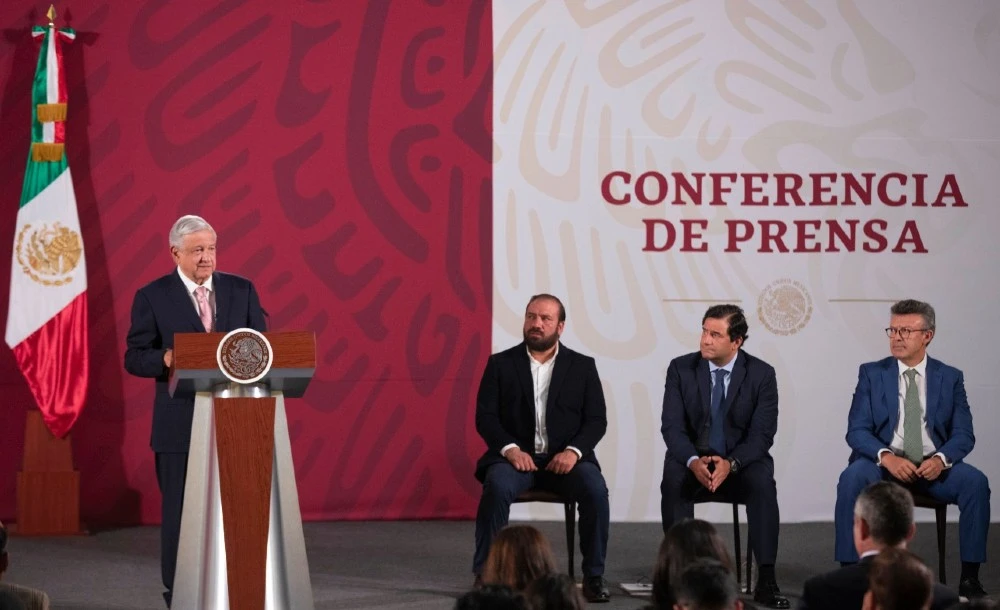Microsoft is investing $1.1 billion into a variety of initiatives in Mexico designed to expand digital access in the country.
The announcement comes a month after Microsoft CEO Satya Nadela expressed his vision to “power broad economic growth through tech intensity” at Davos WEF 2020. He had said that Microsoft will ensure that this economic growth is inclusive. Mexico is now part of this inclusive global digital revolution
Microsoft plans to create a new cloud data center region to deliver its enterprise software products to public institutions and other organizations in Mexico. The new datacenter region will bring Microsoft’s global cloud reach to 57 regions across 22 countries.
The company is planning to create three physical laboratories in partnership with Mexican universities and a virtual classroom to teach students digital skills. The goal of the initiative’s education pillar is to train students for the jobs of the future.
Microsoft CEO Satya Nadela addressed the Mexican government via a recorded video link. Nadela said,
“In a world where every aspect of our life is being transformed by Computing, we have an unprecedented opportunity to apply digital technology to create opportunities in Mexico. To help make every small business productive, every MNC in Mexico more competitive, creating more jobs– every government institution more efficient and improving education and healthcare outcomes.”
As part of Microsoft’s AI for Earth program, the company will also invest in the research and conservation of the Mexican Pacific Ocean’s Mako shark species.
Nadella shared how his last year’s trip to Mexico helped to create this investment fund for the country.
“I met so many inspiring Mexican innovators. From local hospitals applying technology to improve patient care, Mexican MNCs leveraging the latest Collaboration tools to foster a completely new culture of work to manufacturing companies harnessing the power of AI to glean new insights and improve their Operations.”
“And today, I’m very excited that we’re announcing a new $1.1 Billion investment in Mexico over the next 5 years focused on enhancing access to digital technology for people and organizations across the country.”
Microsoft will establish a new cloud data center region in Mexico. This would deliver its intelligent and trusted cloud services to serve Mexico’s public entities, organizations and Mexican society.
The company will provide access to Microsoft Azure, Office 365, Dynamics 365 and the Power Platform. This datacenter region is an important part of Microsoft’s $1.1 billion investment plan in Mexico over the next five years.
The plan also includes a robust education and skilling program. It will help in the creation of three laboratories and a virtual classroom, in collaboration with public universities to create an education platform for digital skills.
AI will be applied to create societal impact is an investment in the project “Artificial Intelligence to Monitor Pelagic Sharks in the Mexican Pacific Ocean” (Shark ID).
Shark ID will be focused on the conservation of Mako shark species, driven by Mexico Azul, as part of the initiative AI for Earth.
Microsoft is also engaging CEOs of leading industry companies evolving in their digital transformation to be part of an Advisory Board to identify the demand for skilling initiatives, share best practices, track progress, and improve employability.
Enrique Perezyera, general manager Microsoft Mexico said,
“In a decade where the digital transformation will undoubtedly open new opportunities and horizons, we are convinced that the announcement of this $1.1 billion investment plan represents how we remain true to our commitment to Mexico’s social and economic development.
The new datacenter region in our country will provide intelligent services to help companies innovate in their industries.
The skilling program not only benefits government institutions, businesses and society at large, it also shows the importance of Mexico as a leader in the adoption of artificial intelligence, cloud and other technologies in Latin America.”



